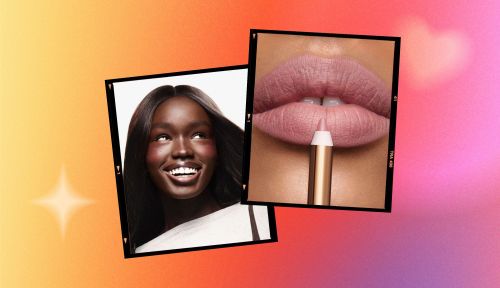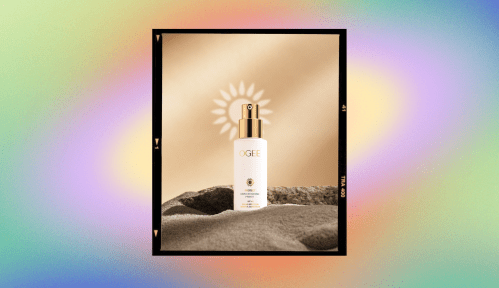Our editors independently select these products. Making a purchase through our links may earn Well+Good a commission
The One Question a Dermatologist Wants You To Ask Yourself To Avoid Wasting Money on Skin Care
Before hitting "add to cart" on any item, you want to check in and ask yourself if this product is fulfilling one of your skin-care goals

We’re constantly told about the products we need to have for “better” skin. But beyond SPF, everything truly is optional depending on your needs. There are certainly tried-and-true ingredients that can help your complexion, like retinol and vitamin C, but that doesn’t mean you necessarily need them in your routine. Before hitting “add to cart” on any item, board-certified dermatologist Daniel Sugai, MD recommends asking yourself one question: What, exactly, are your goals for your skin?
Experts in This Article
board-certified dermatologist based in New York City
board-certified dermatologist at Medical Dermatology and Cosmetic Surgery in New York
board-certified dermatologist specializing in medical and cosmetic dermatology
“I would never buy a product without having a goal in mind,” says Dr. Sugai in a recent TikTok video. “I’m seeing so many patients who have way too many skin-care products. Teenagers who are using vitamin C serum when they have acne—vitamin C does not work on acne. So before spending your money on all these products, have a skin-care goal in mind.”
To help you narrow your search—and avoid wasting money on products—we rounded up the best ingredients for each specific skin-care “goal.” Keep scrolling to shop them for yourself.
To treat acne
1. Adapalene
Retinoids help with acne by tackling one of its main causes, abnormal keratinization, which happens when there’s an excess of “sticky” dead skin cells on the surface of your complexion that build up and clog your pores. Retinol stimulates cell turnover, bringing healthy new cells to the surface and getting rid of all the old ones. Dr. Sugai suggests chatting with a dermatologist to get a prescription version of the ingredient, but if you want something you can snag at the drugstore, opt for Differin Gel ($18). It’s made with adapalene, aka the strongest retinoid you can get over the counter.
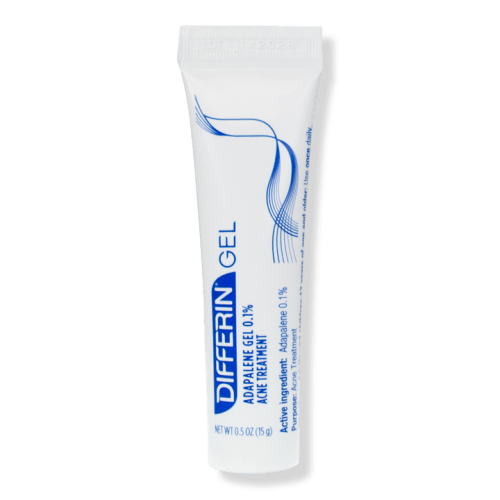
Differin Gel — $18.00
2. Benzoyl peroxide
Benzoyl peroxide is an ingredient that’s great at clearing away P. acnes, the bacteria responsible for ance. “P. Acne is a bacteria that lives on everybody’s skin, but it likes to grow in particular in acne lesions because it feeds on that oil,” saysElizabeth Kream, MD, a board-certified dermatologist in New York City. “There’s overgrowth and there’s a dysregulation of P. Acnes in acne lesions.” She recommends the Neutrogena Clear Pore Cleanser/Mask ($12), a benzoyl peroxide cleanser that you can use as a regular face wash or leave on for five minutes before rinsing as a deep-cleansing mask.
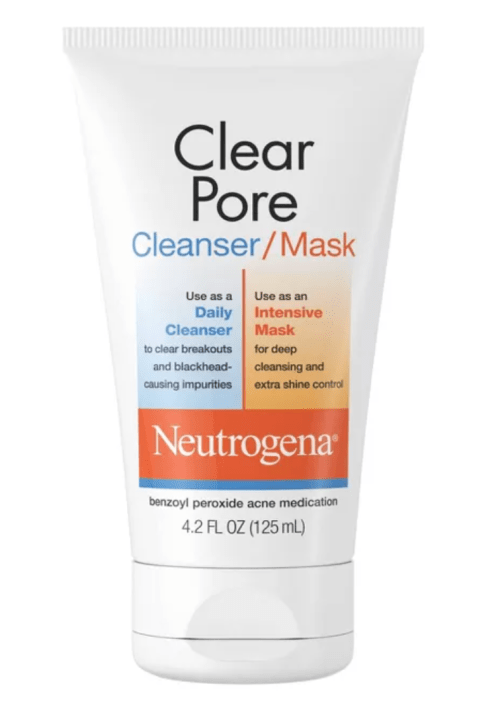
Neutrogena Clear Pore Cleanser/Mask — $12.00
To soften/prevent wrinkles
1. Retinal
Retinoids also help to increase the skin’s production of collagen—the protein that keeps skin thick, firm, and bouncy—and retinal is starting to outshine retinol as the go-to OTC retinoid for smoothing fine lines. “What’s nice about retinal is that they’re a little bit more potent than your typical, traditional, over-the-counter retinol because they don’t require as much in terms of conversion to retinoic acid, but they’re a little bit more gentle than a prescription,” says Marisa Garshick, MD, a board-certified dermatologist in New York City. She loves the Medik8 Crystal Retinal ($53).
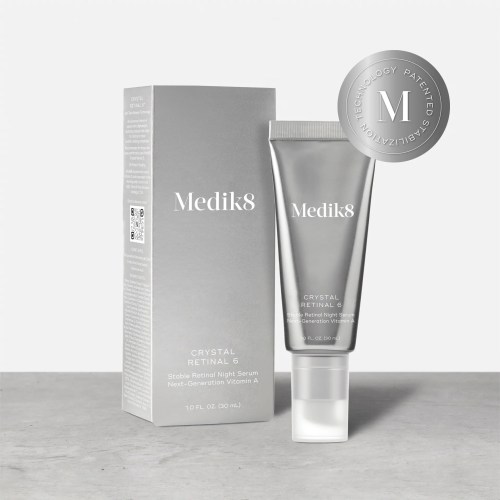
Medik8 Crystal Retinal — $53.00
2. Vitamin C
Vitamin C also helps to stimulate collagen production, but it’s best known for its protective attributes. As a potent antioxidant, vitamin C helps prevent free-radical damage. Free radicals are unstable oxygen molecules that seek out healthy skin cells to latch on to their electrons, and thus, destabilize them. When our skin cells endure this damage, they’re less able to perform as normal, which leads to signs of aging like fine lines and discoloration coming on sooner than they should. Dr. Garshick is a huge fan of the Maelove The Glow Maker ($30) which blends vitamins C, E, ferulic acid, and hyaluronic acid.
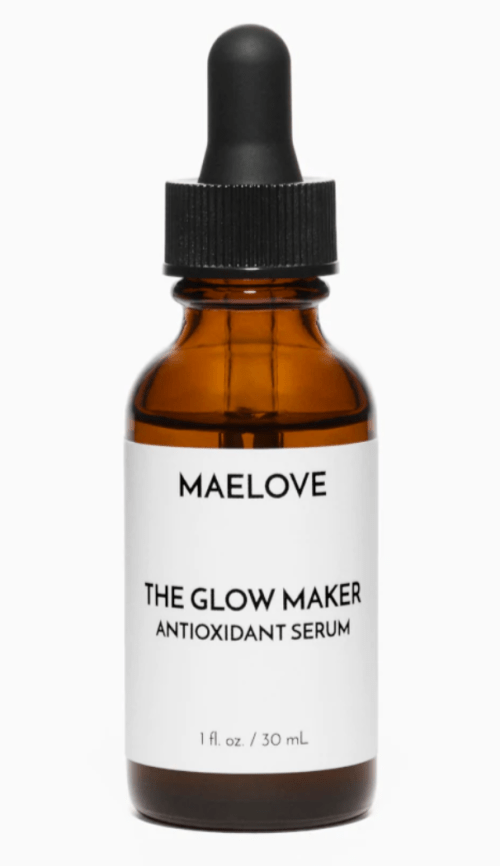
Maelove The Glow Maker — $30.00
To manage dryness
1. Ceramides
When managing dry skin, ceramides are one of your best defenses. They’re lipids that occur naturally in the skin to preserve the skin barrier and lock in moisture. They also function as emollients, a type of moisturizing ingredient that add oil to the skin to help soften and smooth the skin skin. The La Roche-Posay Double Repair Face Moisturizer ($20) is a great option that’s loaded with ceramides.
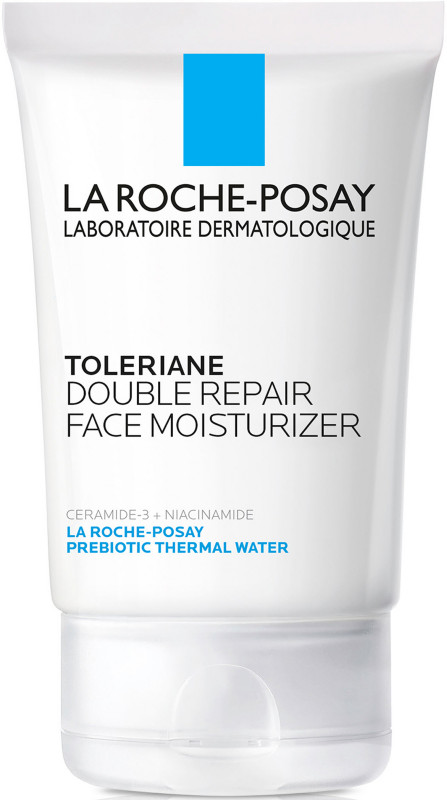
La Roche-Posay Toleriane Double Repair Face Moisturizer with Niacinamide — $20.00
2. Hyaluronic acid
Quench your skin’s thirst with a dose of hyaluronic acid. The water-loving molecule helps your skin absorb and retain moisture to soothe and nourish dry skin. The new Selfmade Secure Attachment Comfort Serum+ ($36) has the perfect blend of hyaluronic acid, squalane, and algae to keep your skin nice and hydrated.
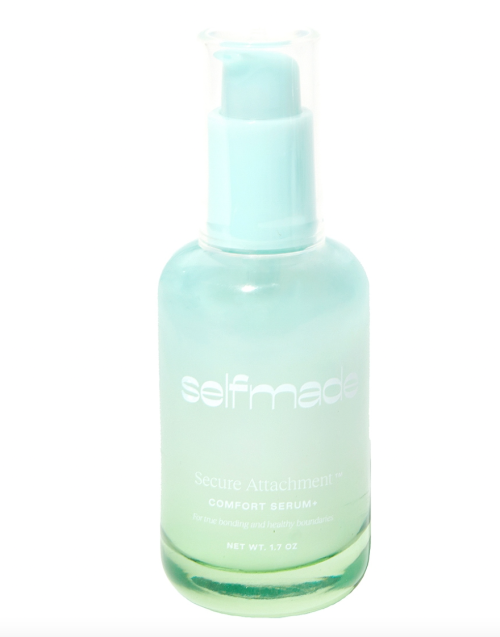
Selfmade Secure Attachment Comfort Serum+ — $36.00
To brighten discoloration
1. Tranexamic acid
Topical tranexamic acid regulates melanin production in the skin, meaning it can help manage discoloration like acne scarring, photoaging, and melasma. Topicals Faded Serum ($18 to $38) blends tranexamic acid with two other skin-brightening ingredients—namely niacinamide and azelaic acid—to help fade discoloration.
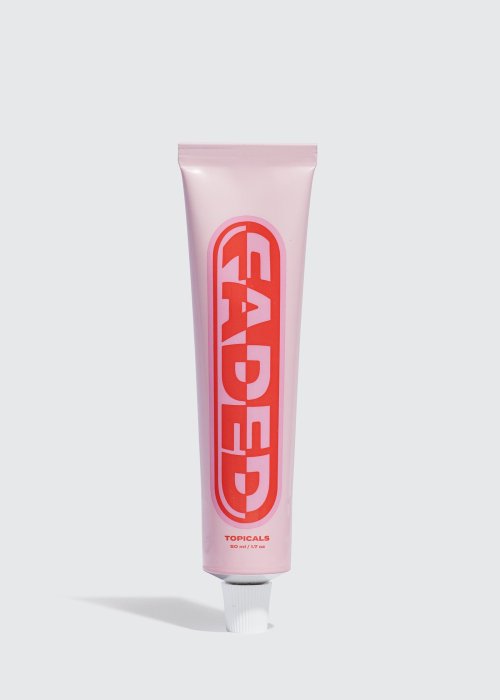
Topicals Faded Serum — $18.00 to $38.00
2. Cysteamine
Cysteamine is a buzzy new ingredient that gives controversial hydroquinone a run for its money. Instead of bleaching your skin, the way hydroquinone does, it reduces your body’s melanin synthesis to bring your skin back to its baseline shade. You apply it to dry skin before you wash your face and let it work its magic for 15 minutes before rinsing off. The Urban Skin Rx Hypercorrect Intense Fading Cream ($48) heroes cysteamine and is a wonderful addition to your morning or evening routine.
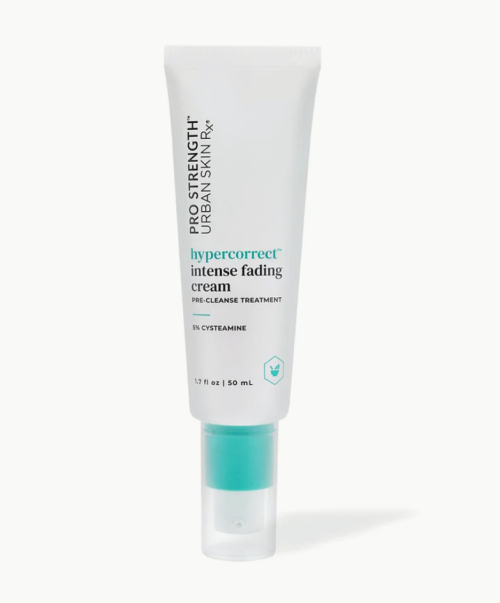
Urban Skin Rx Hypercorrect Intense Fading Cream — $48.00
To decrease oil
1. Niacinamide
Niacinamide is a form of vitamin B that can help normalize your skin’s oil production. Meaning that with consistent application, you can see a decrease in oil production. “Niacinamide has calming and anti-inflammatory properties, which counteract the effects of stress hormones on the skin,” saysShirley Chi, MD, a board-certified dermatologist in Southern California. “Stress hormones increase oil production on the skin, so decreasing inflammation makes your skin less oily.” The Allies of Skin Prebiotics Niacinamide Pore Refining Booster ($73) is a great option.
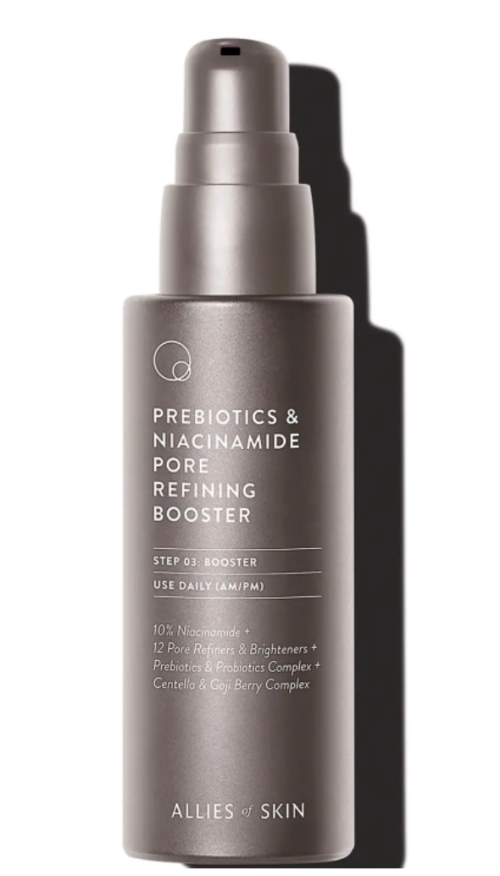
Allies of Skin Prebiotics Niacinamide Pore Refining Booster — $73.00
2. Mandelic acid
While niacinamide does its job, you can get rid of your excess oil with the help of mandelic acid. “What’s nice about mandelic acid is that because it is a larger molecule, it’s generally a little bit easier to tolerate and less irritating than other alpha-hydroxy acids, like glycolic acid,” says Dr. Garshick. She really likes the Glow Recipe Strawberry Smooth BHA + AHA Salicylic Acid Serum ($40), which also includes mandelic acid.
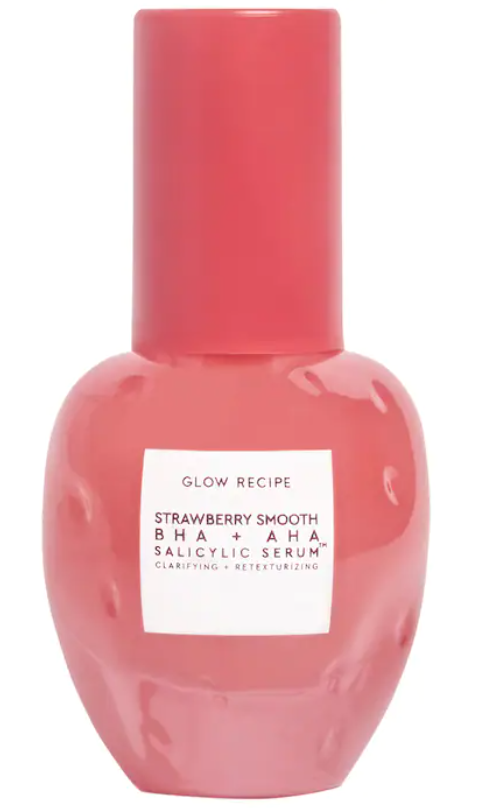
Glow Recipe Strawberry Smooth BHA + AHA Salicylic Acid Serum — $40.00
Want to be the first to hear about the latest (and greatest) SHOP product drops, custom collections, discounts, and more? Sign up to have the intel delivered straight to your inbox.
Sign up for the Well+Good SHOP Newsletter
Get exclusive deals on wellness, beauty, fitness, and food products that have been hand-picked by our editors.
Got it, you've been added to our email list.



